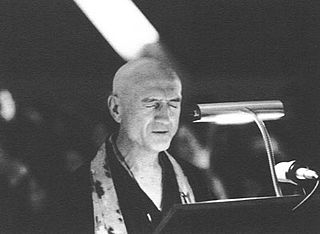A Quote by Edgar Allan Poe
The mere imitation, however accurate, of what is in Nature, entitles no man to the sacred name of Artist
Related Quotes
Nothing has a greater tendency to lessen the reverence which mankind ought to have for the Supreme Being, than a careless repetition of his name upon every trifling occasion . . . . To prevent this profanation, such passages are selected from scripture, as contain some important precepts of morality and religion, in which that sacred name is seldom mentioned. Let sacred things be appropriated to sacred purposes.
Religion grows with the intelligence of man, but all religions of the past and probably all of the future will sooner or later become petrified forms instead of living helps to mankind. Until that time comes, however, if religion of any name or nature makes man more happy, comfortable, and able to live peaceably with his brothers, it is good.
It appears to Nietzsche that the modern age has produced for imitation three types of man ... First, Rousseau's man, the Titan who raises himself ... and in his need calls upon holy nature. Then Goethe's man ... a spectator of the world ... Third Schopenhauer's man ... voluntarily takes upon himself the pain of telling the truth.
Nothing can be more contrary to nature, to reason, to religion, than cruelty; hence as inhuman man is generally considered as a monster; such monsters, however, have existed; and the heart almost bleeds at the recital of the cruel acts such have been guilty of; it teaches us, however, what human nature is when left to itself; not only treacherous, but desperately wicked.
Criticism is a study by which men grow important and formidable at very small expense. The power of invention has been conferred by nature upon few, and the labour of learning those sciences which may, by mere labour, be obtained, is too great to be willingly endured; but every man can exert some judgment as he has upon the works of others; and he whom nature has made weak, and idleness keeps ignorant, may yet support his vanity by the name of critic.
The principle that the majority have a right to rule the minority, practically resolves all government into a mere contest between two bodies of men, as to which of them shall be masters, and which of them slaves; a contest, that-however bloody-can, in the nature of things, never be finally closed, so long as man refuses to be a slave.






































